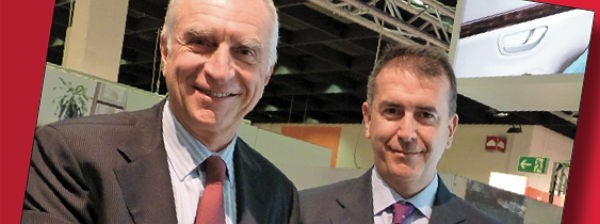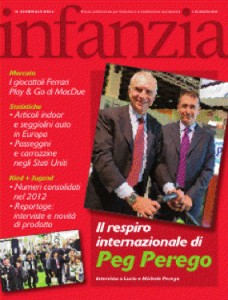 Having spoken to Peg President Lucio Perego in a video conference with his brother Michele, who heads the business in Brazil, we can attest to the company’s commitment to deliver products in line with the needs of all the countries in which it operates. Other topics covered in the interview include the strategies adopted to respond to the crisis in the Italian market, recent innovations, and the company’s presence abroad, especially in the Americas.
Having spoken to Peg President Lucio Perego in a video conference with his brother Michele, who heads the business in Brazil, we can attest to the company’s commitment to deliver products in line with the needs of all the countries in which it operates. Other topics covered in the interview include the strategies adopted to respond to the crisis in the Italian market, recent innovations, and the company’s presence abroad, especially in the Americas.
Our very interview highlights the strong international vocation of Peg Perego: it was only via a video conference that we were able to speak both to Peg President Lucio Perego, from his headquarters in Arcore (Milan), and to Michele Perego, his brother, who heads the business in Brazil from Limeira, in Sao Paulo. The interview, however, opened with a few remarks on the Italian childcare market: “This year, perhaps for the first time, we have registered a significant drop across the board, which obviously worries us,” said Lucio Perego. “Given the crisis, Italian consumers have become very price sensitive. Italy is clearly a very important market for us, but the company operates worldwide, and the revenue shortfalls encountered in the domestic market have been offset by gains achieved in other countries. However, we very much regret the negative trend in the Italian early childhood sector.
We have taken appropriate solutions to meet the changing needs of consumers, ensuring timely deliveries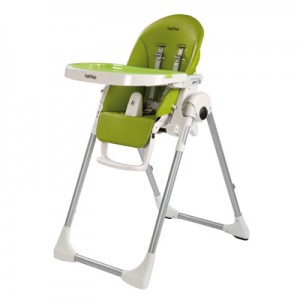 and, above all, providing them with what they actually want: as regards strollers, we have striven to offer customized solutions giving mothers the opportunity to choose freely between frames, strollers, modular elements and relating cover colors, moving beyond the concept of a closed package, not always suited to their needs. As for indoor childcare articles, we have expanded our range of highchairs, introducing an entry-level yet highly functional product that can be used from birth, thanks to the adjustable seat [Prima Pappa Zero3]. At the same time, we have worked on our line of car seats, once again offering a full range of products: in particular, we have perfected our Group 0+ device, which we consider strategic for the company as it relates to our modular system, we have added the top tether to our Isofix models, and we have introduced a Group 2/3 device for older children. At the Kind + Jugend fair in Cologne we also presented a new booster seat that will be produced as from early 2013. Furthermore, in the wake of the Book chassis and of the “Choose the frame” program, we also introduced Pratico, a new slim and lightweight seat that enables parents to prolong use of the modular set’s chassis as a non-reversible stroller.
and, above all, providing them with what they actually want: as regards strollers, we have striven to offer customized solutions giving mothers the opportunity to choose freely between frames, strollers, modular elements and relating cover colors, moving beyond the concept of a closed package, not always suited to their needs. As for indoor childcare articles, we have expanded our range of highchairs, introducing an entry-level yet highly functional product that can be used from birth, thanks to the adjustable seat [Prima Pappa Zero3]. At the same time, we have worked on our line of car seats, once again offering a full range of products: in particular, we have perfected our Group 0+ device, which we consider strategic for the company as it relates to our modular system, we have added the top tether to our Isofix models, and we have introduced a Group 2/3 device for older children. At the Kind + Jugend fair in Cologne we also presented a new booster seat that will be produced as from early 2013. Furthermore, in the wake of the Book chassis and of the “Choose the frame” program, we also introduced Pratico, a new slim and lightweight seat that enables parents to prolong use of the modular set’s chassis as a non-reversible stroller.
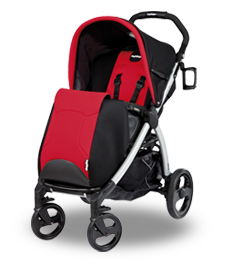 Given the way in which the market is evolving, in the three early childhood segments in which we operate – wheels, car safety and home childcare articles – our strategy is therefore based on the total satisfaction of consumer requirements in terms of customization, product offerings, affordability and price range (with both low and high- end products, such as the Viaggio1 Duo-Fix TT car seat in Alcantara), keeping to the criteria of quality, style, safety and practicality that have always marked Peg Perego products.”
Given the way in which the market is evolving, in the three early childhood segments in which we operate – wheels, car safety and home childcare articles – our strategy is therefore based on the total satisfaction of consumer requirements in terms of customization, product offerings, affordability and price range (with both low and high- end products, such as the Viaggio1 Duo-Fix TT car seat in Alcantara), keeping to the criteria of quality, style, safety and practicality that have always marked Peg Perego products.”
“While the Mediterranean markets – lead by Italy and France – require easier and more flexible solutions, our top of the range articles meet the demands of markets such as Russia and North America, where the price variable is currently less significant”, says Lucio Perego.
Presence in Brazil
We then moved on to discuss the foreign markets in which the company operates, tur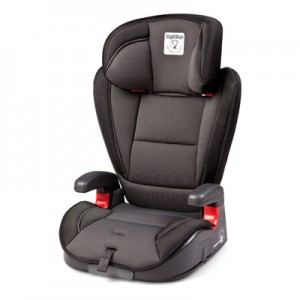 ning to Michele Perego to ask him about the situation in Brazil: “Here too we are introducing our new products, but the process is slower, since acceptance of these products depends on purchasing power, which is a lower than in Europe. Peg Perego sells less in Brazil than in other countries, but we have penetrated the market considerably in recent years, and our presence is becoming more and more established. At the moment, for example, the concept, recently presented to our main customers, of being free to choose everything right from the frame, has been received with great interest.
ning to Michele Perego to ask him about the situation in Brazil: “Here too we are introducing our new products, but the process is slower, since acceptance of these products depends on purchasing power, which is a lower than in Europe. Peg Perego sells less in Brazil than in other countries, but we have penetrated the market considerably in recent years, and our presence is becoming more and more established. At the moment, for example, the concept, recently presented to our main customers, of being free to choose everything right from the frame, has been received with great interest.
In Brazil, Peg Perego is positioned at the high end of the market, alongside leading brands worldwide. Furthermore, locally we produce through the company Burigotto, the leading manufacturer of childcare products in Brazil with 450 employees, which Peg Perego acquired in 2001. In addition to Peg Perego articles from Italy, Burigotto also distributes its own products: strollers, car seats, high chairs, baby walkers, baby baths-changing and travel cots. The acquisition of Burigotto, in addition to bringing great value to the group, has also played a driving role in raising the brand from its previously marginal status to the prestigious position it holds today, making Brazil one of the target markets for Peg Perego.”
Potential of the Brazilian market
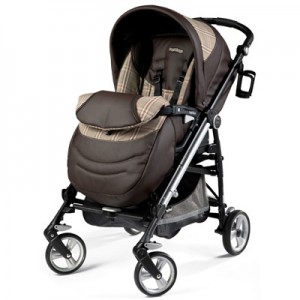 What are the main differences and similarities between the Brazilian and the Italian market? “The distribution channels are quite similar to those in Italy: there are many specialized dealers – we have about 3,000 active customers – who control a large proportion of total sales and constitute our main showcase; but there are also mass retail chains – not just Wal-Mart, but also local organizations with a significant weight,” says Michele Perego. “One of the main differences as compared to our country is the importance of e-commerce: the proportion of sales on the Internet, dealt both through totally “virtual” shops and through retailers with “physical” stores, is around 30 per cent, and this trend is on the up. With regard to consumption, price is the driving factor in Brazil. Therefore, to achieve good volumes, it is essential to have products spread across all price ranges. Our strength lies in the fact that
What are the main differences and similarities between the Brazilian and the Italian market? “The distribution channels are quite similar to those in Italy: there are many specialized dealers – we have about 3,000 active customers – who control a large proportion of total sales and constitute our main showcase; but there are also mass retail chains – not just Wal-Mart, but also local organizations with a significant weight,” says Michele Perego. “One of the main differences as compared to our country is the importance of e-commerce: the proportion of sales on the Internet, dealt both through totally “virtual” shops and through retailers with “physical” stores, is around 30 per cent, and this trend is on the up. With regard to consumption, price is the driving factor in Brazil. Therefore, to achieve good volumes, it is essential to have products spread across all price ranges. Our strength lies in the fact that
we have products of excellent quality accessible to all budgets. It is also true, moreover, that in recent years Italian consumers have become more and more price sensitive.
An encouraging aspect of the Brazilian market is that the share of consumers able to afford high price products is gradually increasing. Here, the population is classified by income into four groups (A to D), with group C (the level just above poverty) significantly shifting towards group B. Thanks to this sociological phenomenon that enlarges the middle class, spending power increases. We’re talking about 20-30 million consumers, a figure that is not to be scoffed at. Moreover, those who belong to group A can afford just about everything, including Peg Perego products, a brand considered of a high level, in line with all-Italian production excellence. We are taking great care over the brand’s image, opening showcases in specialized stores and participating in events in the most elegant shopping malls in Sao Paulo and Rio de Janeiro. Brazilian consumers perceive the connection between the brand and the prestige of Italian fashion. Furthermore, the ‘Italianness’ of our products is certified by our genuine “Made in Italy” claim – or rather, “made in Peg Perego”, as our product are development and designed entirely in-house, and the vast majority of our components are manufactured internally. I would like to make a further remark: in Brazil, while Peg Perego benefits from Burigotto’s widespread presence, Burigotto also benefits from Peg Perego’s Italianness.”
[Read on the interview]


